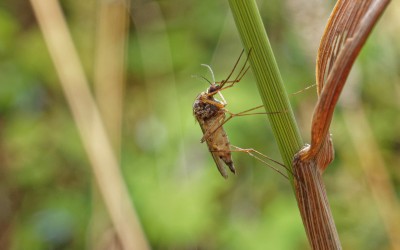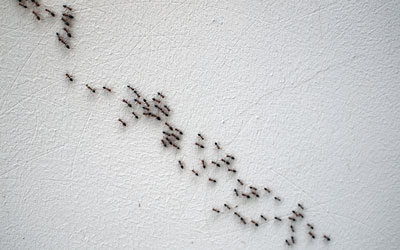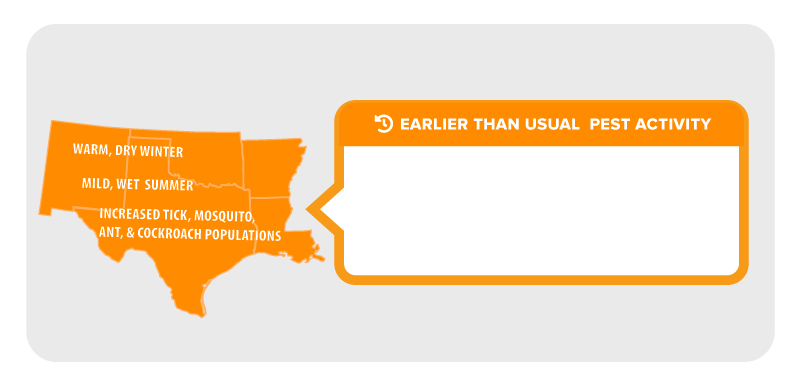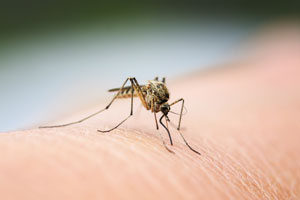In Albuquerque NM, spring brings renewal to the desert landscape, temperatures warm and wildflowers paint the once-arid desert. This time of year also means it’s time to freshen your home and plan for a deep spring clean. Spring cleaning has many benefits such as decreasing stress, reducing clutter and improving your overall mental and physical health. In addition to improving your health, spring cleaning is the perfect time to check for signs of spring pests in your home and take preventive measures to ensure your home is not attracting any unwanted guests.
How to Prevent Pests in your Home
While you are cleaning and organizing your home, it is important to check areas where pests commonly hide for signs of an infestation like droppings, dead pests, wood shavings and egg casings. Below are a few steps to add to your cleaning routine that will help keep pests out of your home.
Thoroughly Clean Kitchens and Bathrooms
Kitchens are often ground zero for pest infestations. It is the area in your home with the highest availability of food and warm hiding spaces that many pests find attractive. When spring cleaning your kitchen it is important to clean areas where crumbs or spills are common. Clean under large appliances and cabinets. Food often gets stuck in these hard to reach areas making it an ideal place for pests to scavenge.
Spring is also the perfect time to clean out your cabinets and throw away any expired or unwanted food. Pests such as rodents and ants are known to invade cluttered cabinets and get into your food. Ensure open food products are stored in airtight containers and keep an eye out for any holes or cracks where pests could enter.
Bathrooms are another area where pests are common. They are often attracted to easily available sources of water and are able to enter your home through drains or windows. While cleaning window sills and cabinets, check for holes around your windows and leaking pipes or faucets. Some pests will enter through drain pipes. Pouring bleach down your drain regularly will help deter any pests from entering.
Reduce Clutter
Clutter is the perfect hiding place for pests such as spiders, rodents or ants. They will use clutter as a place to hide or build their nests. Reducing clutter within your home not only makes your house look cleaner and decreases stress but it will also make your home less hospitable to a variety of pests.
In addition to reducing clutter within your home, you should also clean any clutter around the outside of your home as well. Some pests will be attracted to piles of leaves or grass clippings you may have in your yard. Make sure to dispose of any unwanted organic matter in your yard as you landscape in preparation for summer.
Mosquitos thrive in a cluttered yard. They are attracted to standing water that can form in places like buckets, tarps and kid’s toys. Emptying and tidying any areas with standing water will help keep mosquitoes from swarming your yard in the spring and summer.
Inspect the Exterior of Your Home
Pests often enter through small holes or cracks in the exterior of your home. Examine your foundation and walls for any possible entrance points before vegetation begins to grow in the spring and possibly hide any defects. Make sure to seal any holes or cracks with a sealant. This is also the best time to look for signs of termite or carpenter ants on the exterior of your home.
Spring Preventative Pest Maintenance
Pests become more active during the spring as the outside temperatures rise. While spring cleaning can help keep pests at bay the best way to ensure pests do not invade your home is by calling the experts at Pest Defense Solutions. With over 10 years of experience, our technicians are able to expertly identify areas where pests may enter your home and help create a plan to keep your home pest free all year long. Get started with your free quote today!








